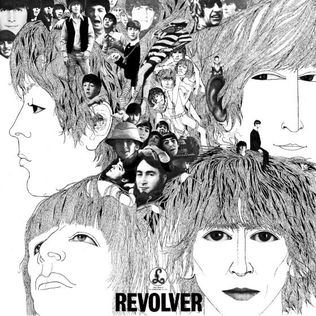
The Beatles – Revolver
The Beatles’ Psychedelic Revolution
Released: August 5, 1966
In the sweltering summer of 1966, The Beatles unleashed an album that would forever alter the landscape of popular music. “Revolver” isn’t just a collection of songs—it’s a declaration of artistic independence, a middle finger to the constraints of conventional pop, and quite possibly the moment when four mop-topped heartthrobs truly became legends.
Gone are the simple love songs and yeah-yeah-yeahs that defined their early career. In their place stands a kaleidoscopic journey through psychedelia, Eastern philosophy, orchestral arrangements, and tape loops that would make an avant-garde composer blush. The album opens with the biting taxation commentary of “Taxman,” George Harrison’s sardonic greeting to the British government, and from there, it’s clear we’re not in Hamburg anymore, folks.
Speaking of Harrison, “Revolver” marks his emergence as a songwriting force within the band. His contributions here are essential, not merely complementary. This is the album where George stopped being “the quiet one” and started being “the one you really need to pay attention to.”
McCartney’s contributions showcase his increasing sophistication as a composer. “Eleanor Rigby” pairs stark imagery with baroque strings, creating what might be pop music’s first legitimate art song. Meanwhile, “Here, There and Everywhere” proves he could still write a love song that would make your grandmother swoon—if your grandmother was into revolutionary chord progressions and sublimely complex vocal arrangements.
But it’s Lennon who pushes the envelope furthest into the bizarre and beautiful. His experiments with tape loops and reverse recordings on “Tomorrow Never Knows” created a template for psychedelic rock that artists are still trying to replicate today. It’s the sound of a man who’s discovered LSD and Indian mysticism, and decided that pop music needed both.
The production, helmed by George Martin, deserves its own chapter in recording history. The innovative use of ADT (Automatic Double Tracking), varied tape speeds, and close-mic techniques created sounds that engineers would spend the next decade trying to figure out. This is the album where the studio truly became an instrument in its own right.
What’s remarkable about “Revolver” is how it manages to be both experimental and accessible. Each sonic adventure is anchored by memorable melodies and harmonies that could only come from The Beatles. They’re pushing boundaries while remembering to bring their audience along for the ride.
The influence of this album cannot be overstated. Without “Revolver,” we might not have had Pink Floyd’s “Dark Side of the Moon,” Radiohead’s “OK Computer,” or any number of albums that dared to treat the recording studio as a playground rather than just a documentary tool.
⭐⭐⭐⭐⭐ (5/5 stars)
Final Thoughts: “Revolver” represents The Beatles at their creative peak—a perfect balance of innovation and accessibility, experimentation and pop craftsmanship. Its only flaw might be that it set the bar so high that rock bands have been struggling to reach it ever since. The album manages to sound both perfectly of its time and completely timeless, a rare feat that cements its place as one of the greatest albums ever recorded. If you only own one Beatles album (though why would you do that to yourself?), make it this one.